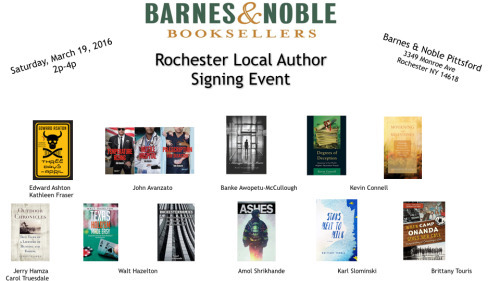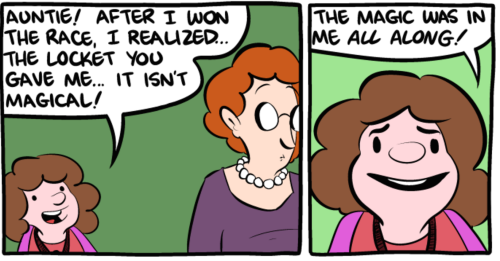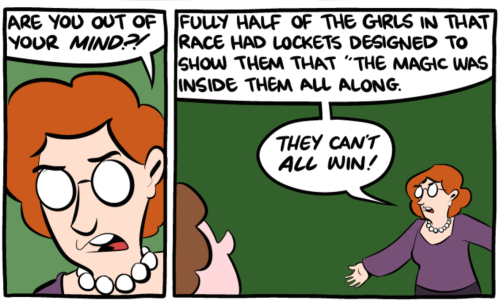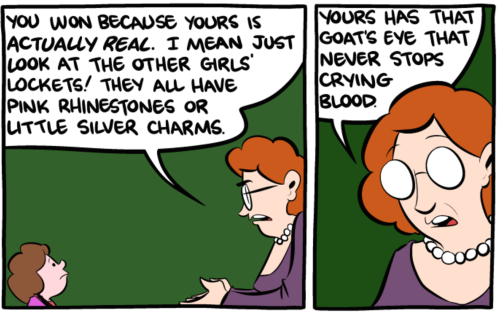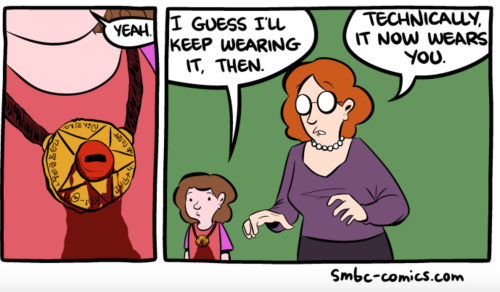Edward Ashton's Blog, page 14
March 24, 2016
Breakup
“I’m sorry,” she says. “This isn’t working anymore.”
I nod. She looks away, and twirls a lock of hair around one long, red-tipped finger.
“It’s not your fault,” she says. “I mean, you’re great. It’s a me thing.”
“It’s okay,” I say. “I understand.”
She smiles.
I smile.
“So…” I say. “You’ll let me out of the pit now?”
March 19, 2016
Did a book signing today at the Pittsford Barnes and Noble. Smiling woman comes up to my table,...
Did a book signing today at the Pittsford Barnes and Noble. Smiling woman comes up to my table, picks up a copy and starts thumbing through it.
Her: Oooh, is this science fiction?
Me: Yeah, it’s set in the near future. It’s mostly a dark comedy.
Her: Oh, so it’s funny?
Me: I think so, yeah.
Her: Will it make me laugh?
Me: Uh… yes?
Her: But will I laugh, like, out loud?
Me: Yes, you will laugh out loud.
Her: Is the humor sarcastic?
Me: Sure. Let’s go with that.
Her: I hate sarcasm. <drops book, walks away.>
Apparently, I am a terrible salesman.
March 18, 2016
March 7, 2016
Daily Science Fiction :: The Curse of Giants by Jose Pablo Iriarte
This one got me. Not really SF, but…
March 5, 2016
An excerpt from my new book, for which I have yet to come up with a title.
It sounds weird to say this, but I was almost five years old the first time I met my dad. I’d seen pictures of him, and I’d heard my mom talking about him, but that was the first time I actually set eyes on him. It was summer then, after the Fourth of July, but before August set in and it got too hot to go outside, and Dad stopped by for dinner.
He came alone, which was strange by itself. I don’t think I ever saw him again out in public without an entourage. He pulled up in front of the house, un-announced, in a generic-looking rented Honda. I was sitting on the front porch, bouncing a basketball off the wall, and waiting for Mom to call me in for meatloaf. He was no bigger then than I am now, but I remember him as being huge, unfolding himself from the front seat of that little car, bald and long-limbed and gangly as a praying mantis. He came up the walk slowly, his eyes on me the entire time.
“Hey,” he said when he got to the bottom of the steps. “You’re Trey, right?”
I nodded, then turned away and bounced the ball off the wall again. He came up the steps slowly, and sat down beside me.
“That’s a nice ball,” he said. “You play?”
I nodded again. I didn’t yet, of course. I couldn’t get the ball up to the rim. I’d already started dribbling, though, and I thought I was on my way to The League. I tossed the ball against the wall. He reached out and caught it in one spider hand.
“That’s good,” he said. “You know who I am?”
I looked him up and down. I knew who he was, all right. I’d seen Mom yelling at him on the wallscreen often enough. I nodded.
“I know you,” I said. “You’re god-damned Darius.”
#
That wasn’t the only time I ever saw Darius Blake, but it didn’t happen often. Mom took me to Boston to meet up with him a couple of times when I was in elementary school, and he came to visit us once more, when I was ten or eleven. He wasn’t much of a dad, obviously, but he was always kind, soft-spoken and polite. You wouldn’t think it if all you ever saw of him was him trash-talking on the court and throwing elbows under the boards, but god-damned Darius was actually an introverted guy, the kind of player who’d rather have spent his free evenings with a book than with a crowd of wanna-be baby mamas.
That wasn’t how it worked out for him, though. He was a star from the first pro game he played, and when things started getting crazy, just before the Stupid War, he was probably the most famous basketball player in the world. Some of the people in the UnAltered movement tried to adopt him then, tried to make him into some kind of latter-day John Henry, standing against the wave of Engineered players that was just starting to crest. He never did anything to encourage them, but the UnAltered label stuck to him anyway, and after the Hiatus, when they started playing basketball again, the protests and counter-protests when the Celtics came to town sometimes got more press than the games.
I was too young to worry about that stuff at the time, of course. All I knew was that god-damned Darius had something for me every time I saw him—candy that first time, later clothes or shoes or gift cards for electronics or music. The last time he came to the house, he took me out onto the basketball court Mom had put up for me in the side yard, and spent an hour showing me how to start right, cross over and finish with my left hand.
“He’s good,” he told Mom later. “Gonna be a star some day, just like his daddy.”
It was a nice thing to say—but I was a natural-born Homo sap, and I’m guessing he knew even then that it wasn’t going to happen.
February 29, 2016
The Bird | Issue 31
I’ve always said that my stories are like my children: I pretend to love them all equally, but secretly one is my favorite. Well, my special snowflake is in this month’s issue of Fireside Fiction. Give it a peek if you have a chance.
February 20, 2016
stability:
The Locket by smbc-comics
February 15, 2016
Geeky Giving - Geek Out. Give.
A few months ago, the folks at Geeky Giving approached me to see if I’d be willing to donate some swag in support of Barrow Neurological Research Institute. It seemed like a nice dovetail with what I do IRL, so I sent them an unpublished story and a couple of signed copies of Three Days in April. If you hop over to their website now, you can pick up a copy of that story, along with three others by what appear to be much nicer people that me. You can also register to win a bunch of other stuff, and support a worthy cause in the bargain. Give it a look if you have a few.
February 13, 2016
The Sneetches, by Dr. Seuss: a Critical Review
The Sneetches tells the story of a society made up of fat-assed, flightless, beach-dwelling birds. Think sand pipers, only slower and stupider and more prone to eating hot dogs. They’re also super, super racist. Some of them have stars on their bellies and some of them don’t, and the ones with stars act like total douches to the ones without.
So one day they’re all hanging around the beach being assholes to one another, when Sylvester McMonkey McBean, who’s sort of a chimp in a top hat, rolls up in a mobile tattoo parlor and offers to put stars onto all of the plain bellies. This infuriates the star bellies, because now they can’t tell who they’re supposed to feel superior to anymore. So, McBean offers to take their stars off for them. Then, he offers to take the stars back off of the original plain bellies as well. After a few rounds of this, McBean rolls away with giant bags of sneetch cash hanging off his rig. How, exactly, these stupid birds came to possess so much lucre is left unexplored. The sneetches realize they’re all flat-ass broke now, and they can’t remember who they’re supposed to be assholes to anyway, so everyone lives happily ever after.
On the face of it, this is a charming anti-racist parable, with an unobjectionable message: if only we could forget about (or lose) our superficial differences, discrimination would end, and we could all get along.
Here’s the thing, though—discrimination isn’t based on superficial differences. We don’t actually hate other people because they have a different skin tone, or eye color, or accent. We hate them because we fear them, and we fear them because they are other.
Fear of the other is a deep-seated part of human psychology. For most of our species’ history, being killed by another human was far and away the most likely way for us to die. Our closest relatives, the chimpanzees, spend much of their time patrolling their tribe’s territory, searching for outsiders. When they find one, they kill him if they can. In this sort of environment, a finely honed sense of us versus them is a prerequisite for survival.
Unfortunately, much like our insatiable lust for salt and sugar, this once-necessary instinct is horribly maladaptive in the modern world. Rather than protecting us from legitimate and ever-present danger, it just makes us unnecessarily fearful people we don’t have any real reason to be fearful of, pretty much all the time. Even worse, it provides an access port to our terrified lizard brain, one that can be used by our parents, to get us to avoid dating that kid with the funny last name, or by our government, to get us to kill people who never intended us any harm, or by Donald Trump, to get us to make him our not-so-benevolent overlord.
If hatred and discrimination were all really just a matter of appearances, the solution would be pretty straightforward. All we’d need to do is to keep humping each other until we’re all a nice even shade of tan. Unfortunately, as Ta-Nehisi Coates correctly points out in Between the World and Me, we’re more than capable of hating folks who look just like us. Any cue that allows us to identify someone as other will do—accent, attitude, style of dress—it doesn’t really matter. The sad fact is, we’ll always be able to find something.
So, in summary: Dr. Seuss was well-meaning but naive, sneetches are assholes, and humans are pretty much the worst. There is absolutely nothing we can do to prevent ourselves from instinctively looking for reasons to draw lines between us and them. What we can do, though, is control the way we react to those instincts. I can’t look at a double-fudge brownie without wanting to eat it. That’s an unfortunate inheritance from my starving paleolithic forebears. The thing is, though—I don’t have to be a slave to my instincts. It’s an effort of will, but I’m perfectly capable of walking away.
February 4, 2016
Fun Science Fact #30: Everything Costs Something.
A few days ago, a friend sent me a photo of a dead bird, with a wind farm in the background. The caption said, “If this bird was covered in oil, this picture would be everywhere.” The implication, obviously, was that wind power sometimes kills birds, just like oil sometimes kills birds, so therefore they’re basically equivalent. So, I sent him back an answer: “You know what else kills lots of birds? Cats. Are they the same as oil?”
Was this a constructive response? No, probably not. He sent me back a string of question marks, and a picture of Archie Bunker calling me a meathead, which led me to believe that I probably could have expressed myself more clearly. So, here is what I was actually trying to say: nothing that we do in this world is completely free from harm to someone or something. The strictest of vegans still murders carrots on a regular basis, and probably eats a few dozen spiders in his sleep every year to boot. You can’t simply say that because something has a downside, we can’t do it, because if you follow that methodology, we’d never do anything at all. What you can do is weigh the costs of any particular thing you want to do against the benefits, and then make a decision as to which carries greater weight.
Power generation poses a particularly sticky problem if you’re concerned about minimizing our footprint on the world. It’s not something we can do without at this point. Without power, we lose mechanized farming. More importantly, we lose the Haber process, which, as you may recall from Fun Science Fact #19, requires a great deal of power, and is responsible for much of the nitrogen fertilizer that eventually turns into all that tasty wheat and corn that we like so much. Take those things away, and the carrying capacity of the planet drops drastically, probably to no more than two billion or so humans at the high end. We’re willing to put up with a lot of cost to avoid that eventuality.
So, if we accept that we need to generate power (a great deal of it, at this point, and more of it every day) the only question becomes how to do it with the least cost. This, of course, raises the additional question of what, exactly, we mean by “cost.” If we approach this from a strictly economic standpoint, it’s actually tough to beat the tried-and-true method of digging things up and setting them on fire. Coal and oil are relatively cheap, and we have a well-established infrastructure set up to exploit them.
This argument, however, ignores the ancillary, non-economic costs of burning fossil fuel, which are considerable. In particular, burning oil and coal in the quantities that we need in order to generate power for seven billion people is changing the composition of our atmosphere. Also, there’s all of those oily birds, a whole lot of unnecessary respiratory disease, and the occasional coal mine disaster. If we take these into account, we should be willing to pay somewhat more per kWh for a less impactful power source.
This leads us back to windmills and solar farms, and that poor dead bird. Renewable energy is generally more expensive than energy derived from fossil fuels. It also has ancillary costs. Wind farms do kill birds sometimes, especially when they’re situated near migratory routes. Thermal solar plants (the kind that use mirrors to focus sunlight on a boiler to generate steam) can actually fry birds in mid-flight. Solar panels, which generate electricity directly, require rare earths, which can be both toxic and environmentally costly to mine.
The thing to understand, though, is that these are not reasonable arguments against building wind farms or solar plants in and of themselves. Unless we’re willing to curb our population pretty severely in a short period of time (hint: we’re not) we need power. The question is not whether renewable sources come with costs. The question is whether those costs outweigh their benefits. Yes, a wind farm will kill some birds. It may also spoil your view of Nantucket harbor. If we want to keep playing Call of Duty and Googling ourselves and eating, though, we’re going to have to learn to cope.

